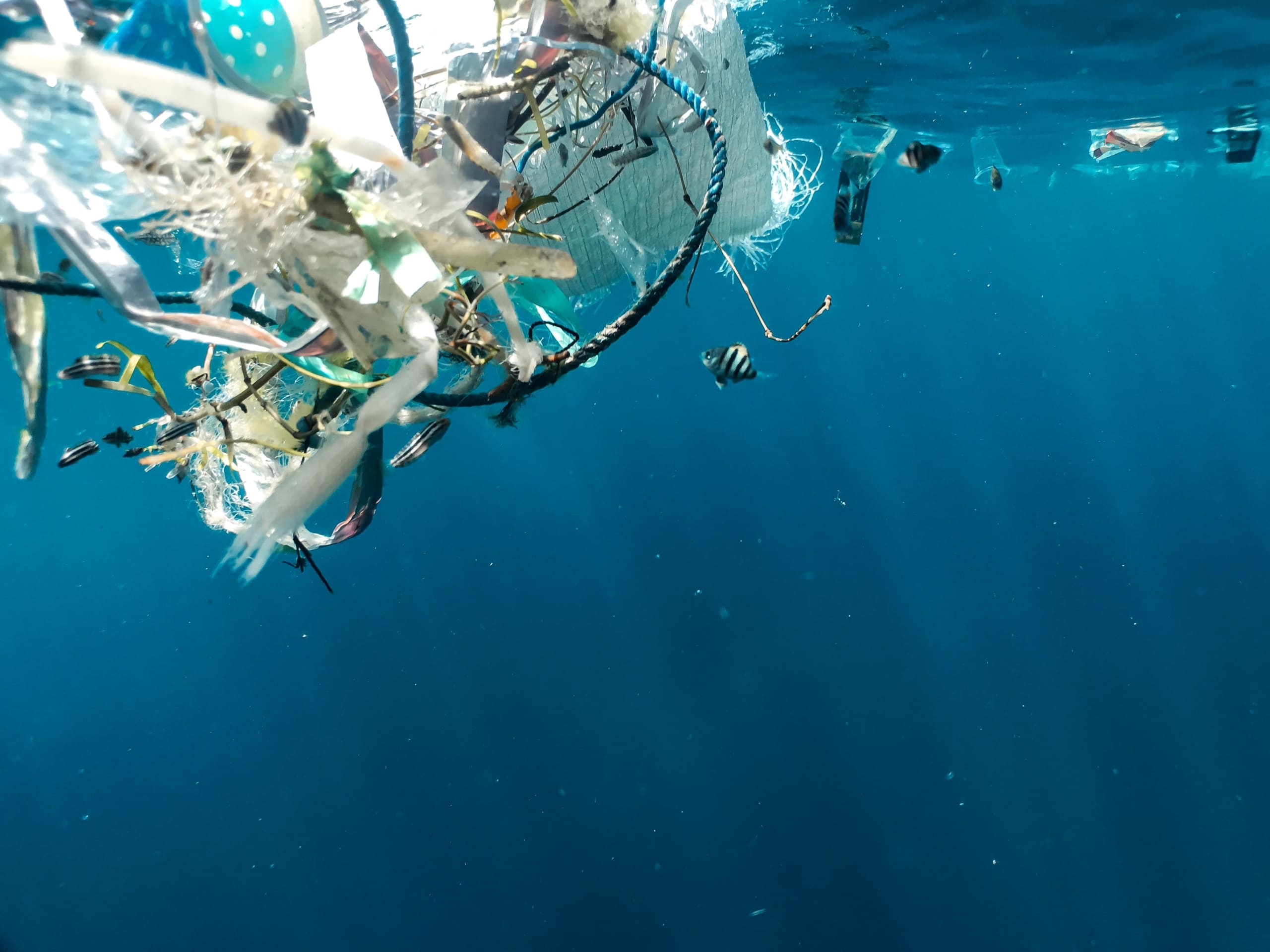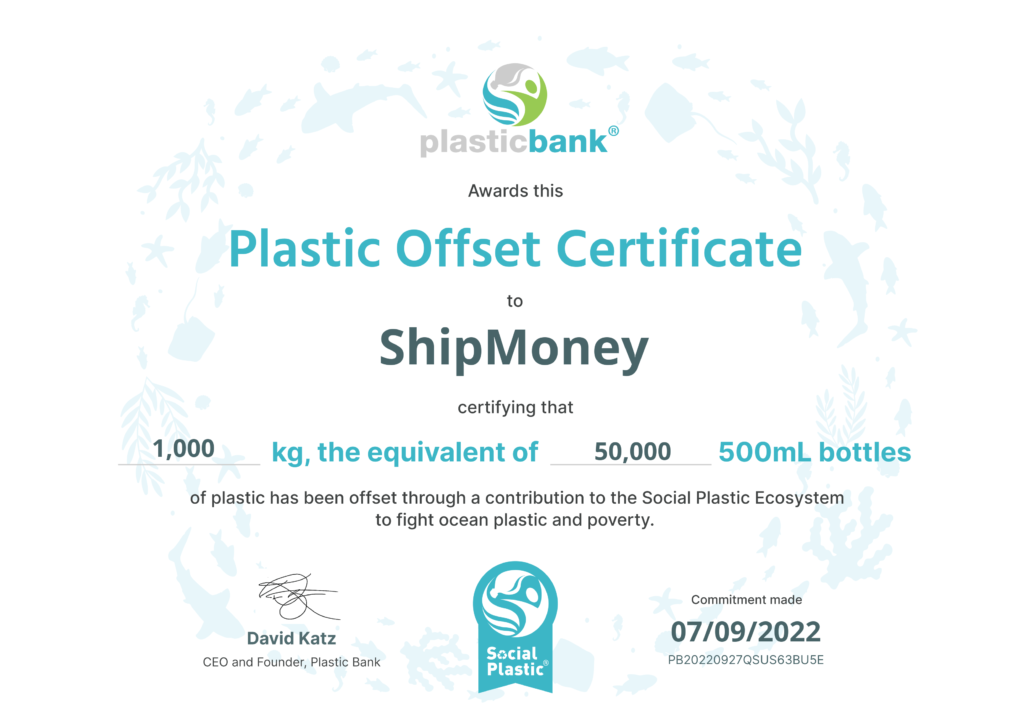
Today it is estimated that 5 trillion pieces of plastic litter our oceans, including bottles, bags, fishing wire and straws, with the average person generating 84 kg of plastic waste per year.
Inevitably this plastic enters the food chain with a recent study*revealing that humans consume about 5 grams of microplastic a week, equivalent to one credit card.
Every year, millions more tons of plastic enter our oceans primarily from rivers and water courses. This is such a huge problem that the Ellen McArthur Foundation predicts that if don’t change the way we design, use, and reuse plastics then by2050 that there will be more plastic than fish in the ocean.
The Ellen McArthur Foundation is one of a growing number of charities and “for purpose” companies that are committed to creating a circular economy, eliminating waste and pollution, while regenerating natural ecosystems.
These stark statistics demonstrate that we must form a broad and global coalition to both extract plastic pollution from the oceans and intercept it in rivers before it can reach our seas.
The theme for this year’s World Maritime Day reflected on the need to support a green transition of the maritime sector into a sustainable future, while leaving no one behind. Entitled “New technologies for greener shipping” it included a major focus on the importance of a sustainable maritime sector and the need to build back better and greener in a post pandemic world.

Plastic Offset Certificate awarded to ShipMoney
Organisations like Plastic Bank® are leading – this approach and it has already become globally recognised as a thought leader, advocate and innovator in plastic recycling while creating social impact.
Along with other companies combatting ocean pollution, ShipMoney has become an official supporter of Plastic Bank®.
Plastic Bank has established ethical plastic collection branches within 50 kilometres of coastlines and waterways in countries where plastic pollution is particularly problematic.
Collection community members gather plastic waste directly from local beaches, riverbanks, neighbourhoods, and households to help stop ocean plastic directly at the source.
This plastic is then recycled reducing the need for virgin plastic to be produced, while supporting local communities and helping to create a lasting environmental, social and economic impact.
Eyesea is a non-profit organisation from the shipping industry with a mission to map global pollution and maritime hazards. It began in 2021 by launching a pollution mapping app designed for seafarers and coastal communities to record and report observational data on ocean impact pollution.
Since then, over 120,000 images of ocean impact and terrestrial pollution have been recorded from over 60 countries and territories. Eyesea has also seen growth in a global network of volunteers that assist with coastal clean-ups, data collection, and tech support.
Eyesea has gained support from various segments of the maritime industry including ship management companies like the Thome Group.
Peter Schellenberger, Thome’s Vice President – Supply Chain, is fully supportive of such initiatives commenting that, “The shipping industry has some key unheralded strengths when it comes to environmental protection and sustainability with its maritime tech, seafarers, ships, and our global reach.”
Eyesea founder Graeme Somerville-Ryan agrees, “ Acting as individuals or single companies we can only achieve so much, but as a community – on shore and at sea – we have access to good ideas and smart people.”
IMPA Save is another collaboration of individual participants in the global maritime supply chain representing ship owners and maritime suppliers who are responding to the United Nations’ call via its Sustainable Development Goals for action to promote prosperity while protecting the environment, ecosystems and communities.
Recognizing that long-term change needs to be mandated through governments, international bodies and regulation , IMPA has taken the initiative adopting sustainable policies both at the membership and association levels. Their aim is to return to healthy and productive oceans by 2030 through the process of decarbonization in shipping, ensuring fully traceable seafood and reducing waste entering the oceans. IMPA Save aims to achieve this via best practice sharing, through strategic partnerships and collaborations and through incentivizing other industry leaders to commit to making tangible changes.
It’s clear partnerships, collaboration and regulation in maritime are needed to create consensus on ocean health. Small changes across the industry can have significant impact when adopted en masse both on and offshore. By recycling plastic and minimizing/eliminating single use plastics we can significantly reduce the amount of plastic which ends up in our rivers and oceans. Finally, supporting organisations like Plastic Bank working with local communities to deliver environmental and social impact is critical while plastic alternatives are developed.
